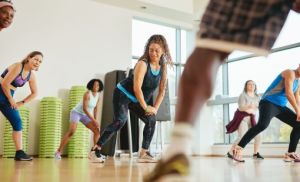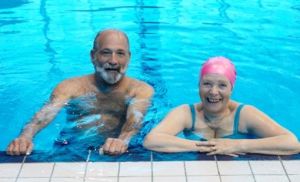Kirsty's Story
Hi Kirsty, tell us a bit more about your fitness journey…
I've been a member of Better since December last year but I’ve been on my fitness journey, I'd say about 10 years now. I started off boxing when I was 17 and then I got into bodybuilding and weight training while I was at college - I competed when I was 19. I was really struggling as a teenager to cope with my emotions, I had undiagnosed ADHD, so a lot of energy and a lot of trauma and things and the gym really helped me kind of regulate my emotions.
I've been on and off consistent over the 10 years, a lot of the time due to health flare ups. I think what's helped me remain consistent is the effect that exercising has on my energy levels and my mood. So if I don't exercise, I end up with a lot of energy and I struggle to sleep - it helps regulate me generally.
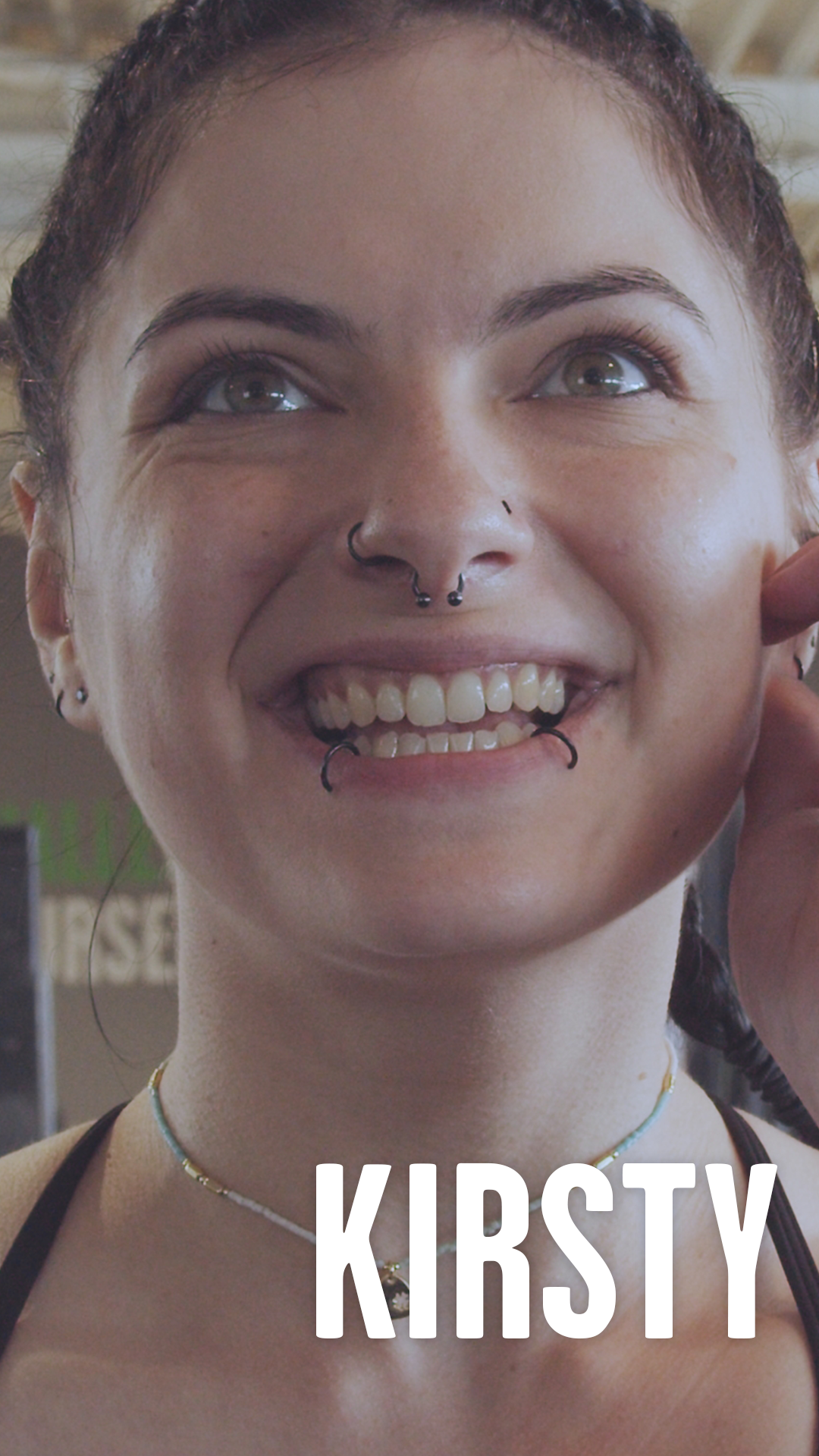
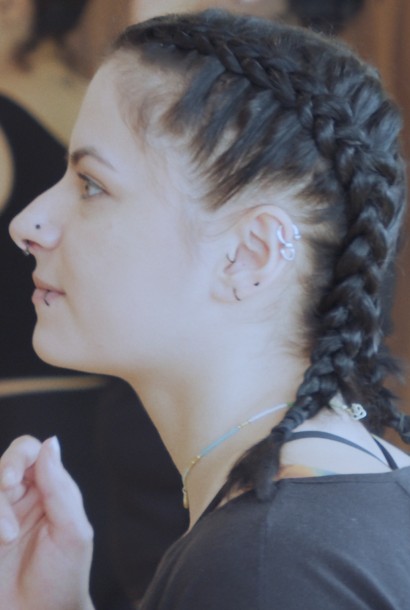
What motivated you to join the gym again?
I don't really go to the gym to focus on how I look; I think that kind of comes as a side effect, for me it is purely for the mental benefits. When I first started coming here, I’d been out of work for a while and my health was quite bad. I was a new wheelchair user and I was waiting for a surgery that I didn't have a date for. So my reason for joining Better was to get stronger for my surgery to ease the recovery.
I was very isolated and more isolated than I admitted at the time. Sometimes coming to the gym was one of the only interactions I would have with people. It got to the point where I was just going to supermarkets because I didn't know where else was accessible and that was sort of where I would speak to people. And then I found the gym and then yeah, through the gym, I found Zumba and then dance classes and basketball. And now like I've made friends through basketball, I even one of them even lent me a wheelchair after my surgery because I couldn't use mine.
Tell us a bit about the other sports you do…
My main sport at the moment is wheelchair basketball, I saw an option for it online, gave it a go and absolutely loved it. It's a great team sport and it's a lot harder than the running game! Through that, I’ve been able to make quite a lot of friends in the disabled community, which has been really beneficial to my mental health, my social health, emotional, everything.
Through the people I’ve met through basketball I’ve started playing para ice hockey, which is ice hockey on a sledge which is really fun.
I started Zumba to help with the isolation and realised that I actually really enjoy dancing - I loved it as a kid. It’s a different ballgame in a wheelchair but since doing Zumba, I've actually started doing online dance classes.
I used to do aerial trapeze and straps but now I focus on what I can do rather than what I can't, which is where the para sports come into it.
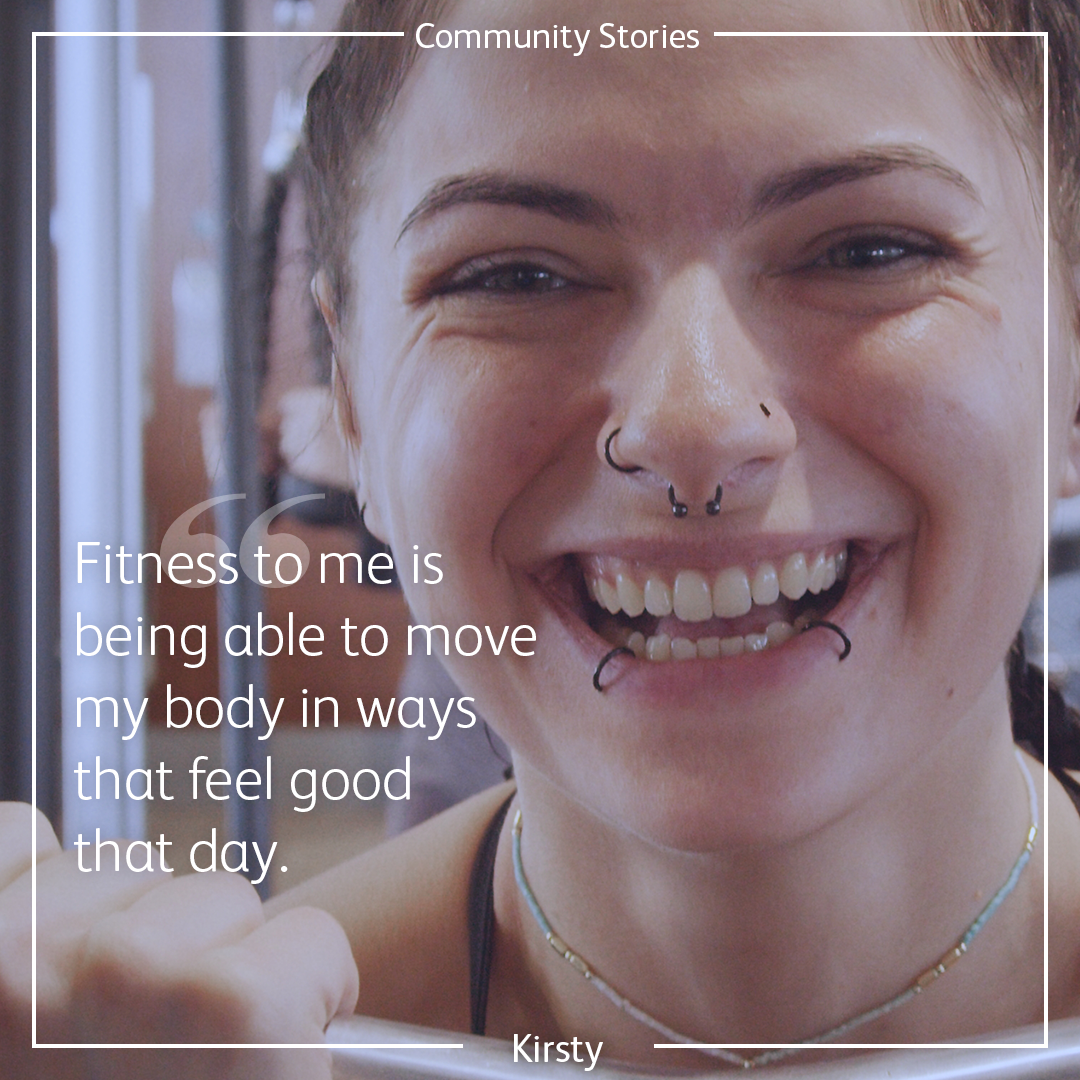
How does exercise makes you feel and what does it mean to you?
Exercise makes me feel empowered. It makes me feel confident and strong in terms of how it affects my daily life as well. And it's exhilarating trying different sports.
Fitness to me is being able to move my body in ways that feel good that day. So, some days it could just be really light movements, light cardio and some days, it can be really going out the boxing bag. Fitness to me is another way to keep healthy.
What sort of workouts do you do in the gym?
Since becoming a wheelchair user, I've added in a few more exercises to help prevent injury because using a wheelchair, you're a lot more prone to shoulder injuries. Coming to the gym and seeing all the leg equipment that I used to use and things like that is quite difficult. I mean, I can still use my legs but it's not very safe or comfortable.
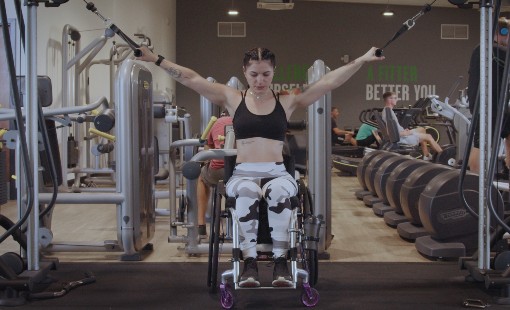
I do a lot of weight training, I use the cables, I also really like doing bodyweight stuff so pull ups, tricep dips. I used to do boxing a lot so getting back into using the punch bag in my wheelchair, it’s a different ballgame again, but great fun and great to release built up stress, anger and frustration.
Trying to get close to cable machines and adjusting things can be quite difficult in a wheelchair but, I just put my headphones in and try and get on with it.
I self-propel, so I think going to the gym does help with cardio because using a self-propelled wheelchair, you're dependent on your arms and your upper body to get anywhere. So, the stronger I get, the further I can go and the easier it makes my day to day life.
How has staying active impacted your health, physically, socially, mentally?
Staying active benefits me mentally because it helps with my emotional regulation, I have ADHD, I also have PTSD. So it can really help with letting out anger and extra emotions. But also, if you're feeling a bit low, it really helps with a mood boost - sometimes I go to the gym, and I really don't want to go, I just turn up to get the mental benefits, to get that endorphin rush and I come out leaving in a completely different mood. I see everything in a different perspective and yeah, it just helps tackle things with a clearer head as well. It's like happy hormones. I just feel energised, and like I can take on anything.
It has a really big physical impact because the stronger I am with the gym, and the more I'm physically able to do, the less I have to rely on people. Obviously independence isn't a gold standard, it's great to be able to rely on people, but people aren't always there to rely on sometimes. I also don't like being pushed so the stronger I am the less I have to ask people to push me!
When I first started here, there was a gym instructor and he was very welcoming, he didn't treat me as, oh, this person's disabled, because sometimes people sort of fear you a little bit or they pity you, or they just treat you differently. And he didn't. For me, that was really important because the gym has always been my safe space and to find that again was great.
Let's talk about goals, do you set goals?
At the moment, I don't have any sort of specific goals; I just have general goals to keep improving my fitness stay on top of my mental health and physical health. I've spent last year in quite a bad place with my mental health because of my physical health, and the kind of cycle that that has. So to finally be in a bit more stable place with my mental health and to maintain that through exercise and staying sociable is really important to me.
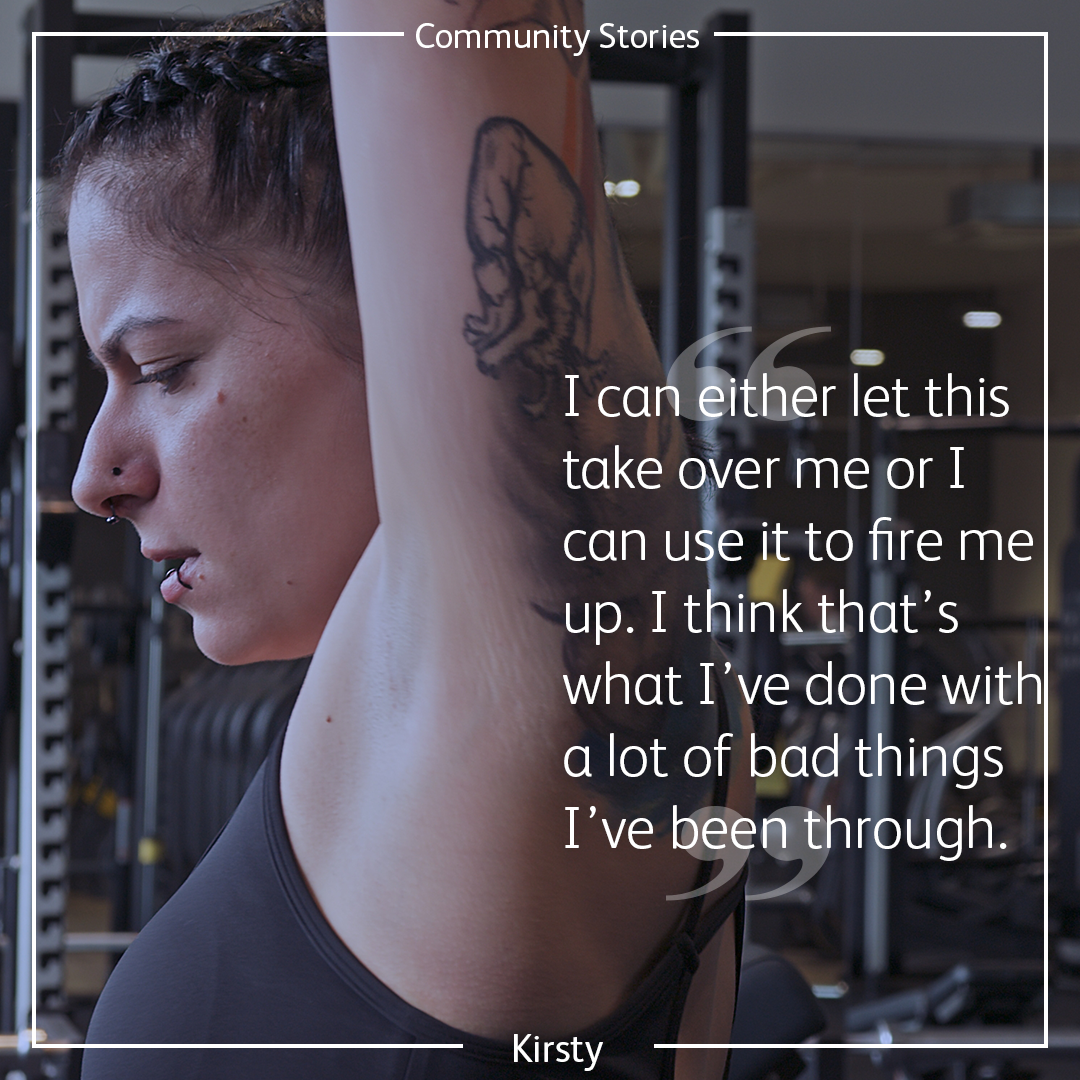
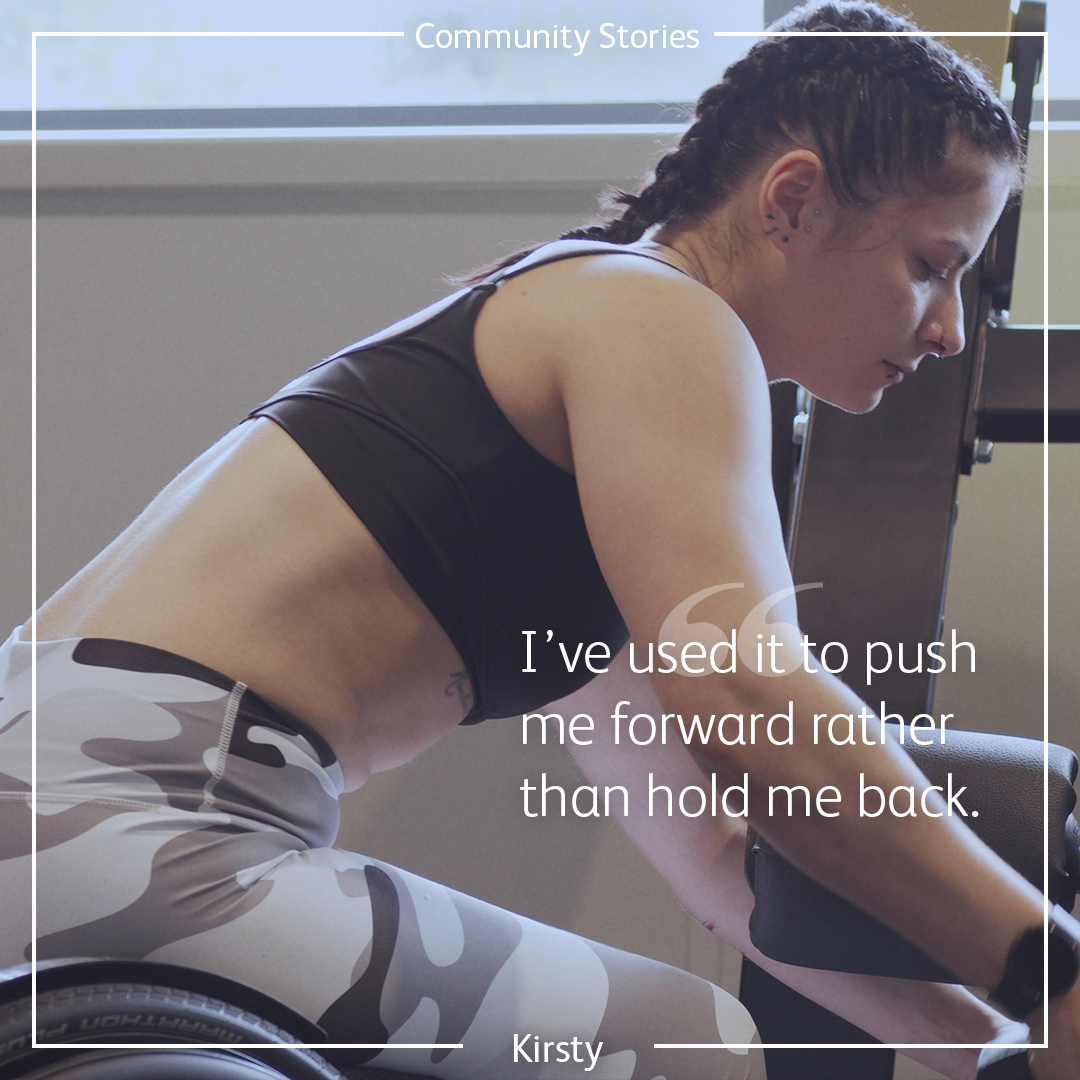
What advice would you give other people who may find it difficult to build physical activity into their day, there's kind of two parts of this, potentially, lack the confidence to participate in sport?
My advice to anyone that lacks the confidence to participate in sport is fake it till you make it. Sometimes, literally just pretending that you're not unconfident and just pretending that, hey, I can do this, I can take up this space, I can do that - even if you don't feel like it, it really does make a difference.
I think trying to see nervousness as excitement, which is easier said than done but if you can do that, it kind of really does help change your perspective.
When people find it difficult to build physical activity into the day, I think it's sometimes best to just start with just walking where you would normally drive or park a little bit further away from somewhere that you would normally go or taking the stairs instead of the lift - obviously, if you're in a wheelchair, that’s not ideal. But yeah, things like getting off the bus one stop earlier, things like that can sort of help. Once you start noticing the effects that's normally when people start to say, hey, I'll take it up a level now. I'll join a gym. I can do this.
How has coming back to the gym impacted your life?
It wasn't until you asked me to do this that I realised that the impact of just making that one decision has kind of had on every aspect of my life. Like it really has had such a butterfly effect, I guess.
I think getting back into the gym and team sports has impacted my life for the better in every aspect. It has also helped me be a lot more confident and comfortable in myself. I think that comes with feeling better, and being able to regulate my emotions and my energy and knowing things that will help me having healthier coping mechanisms. I struggled for quite a number of years with self harm and I spent probably the majority of last year in suicide prevention counselling. So I've had a lot of mental health stuff to work through.
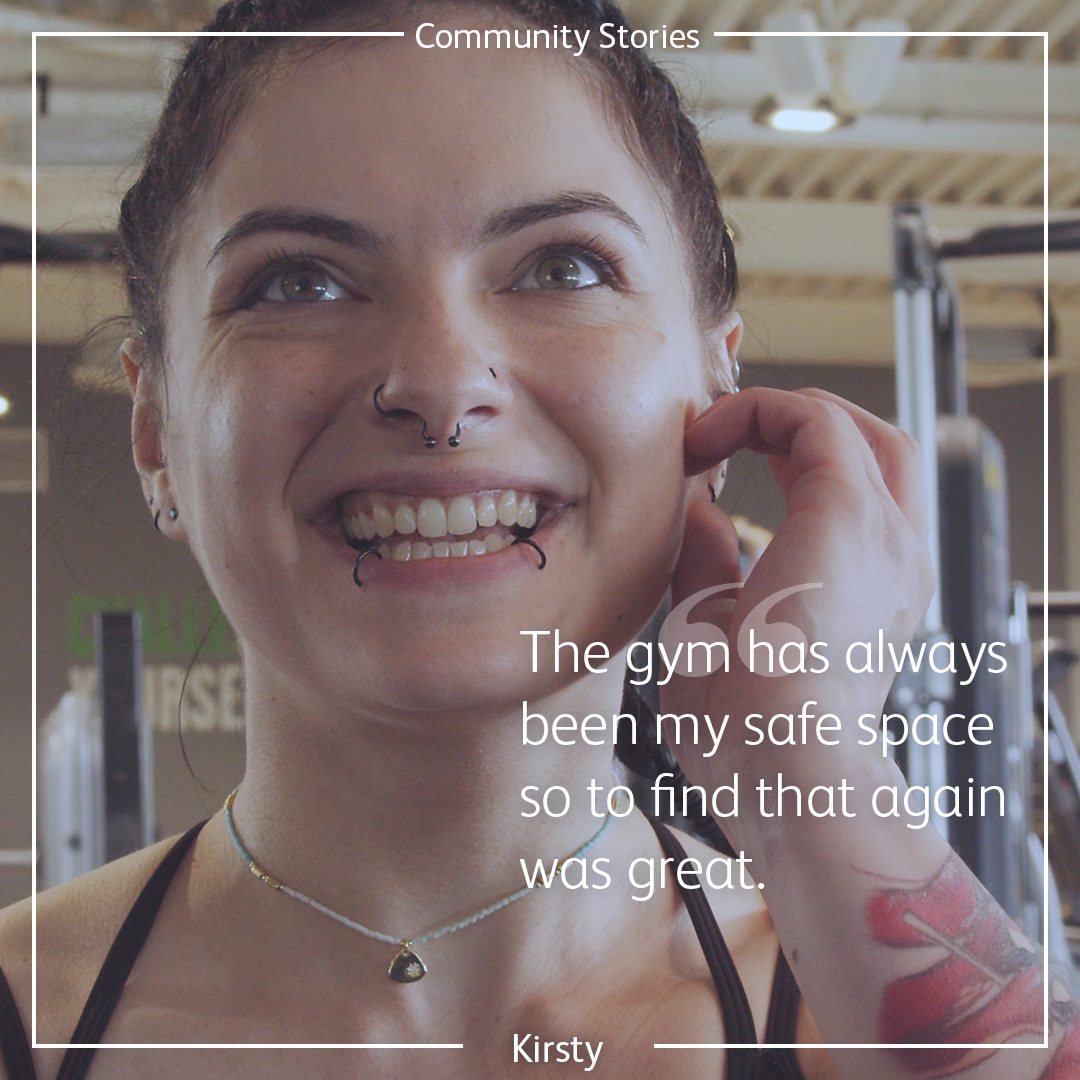
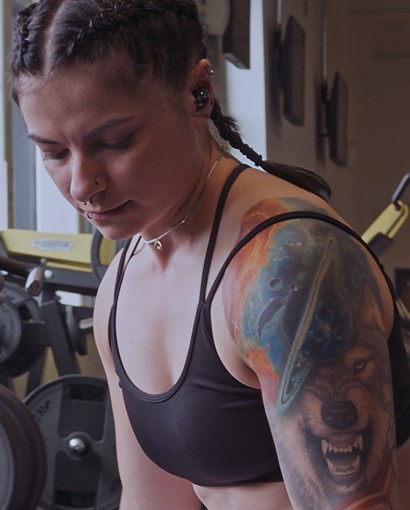
I lost my dad a couple of years ago which made me realise that you never know what's around the corner and it's made me take every opportunity that comes in. There are things like basketball that I always wanted to try but it wasn't until I started using a wheelchair that I thought, hey, let me try this. It was the same with dancing. I think because I was told at some point when I was younger, you can't dance, I just stopped dancing. I think with exercise, if you can find something that you enjoyed as a child, and go back to that, I think that is a huge. To find that enjoyment, something you have fun doing - it makes a huge impact.
I've turned up to the gym and cried during sessions before, but I've still left feeling better because I just need that sometimes. I think it really has reignited my passion for sports and sort of kick-started my life again.
It was like, I can either let this take over me and defeat me or I can use it to fire me up. And I think that's what I've done with a lot of bad things that I've been through. I've used it to push me forward rather than hold me back.
